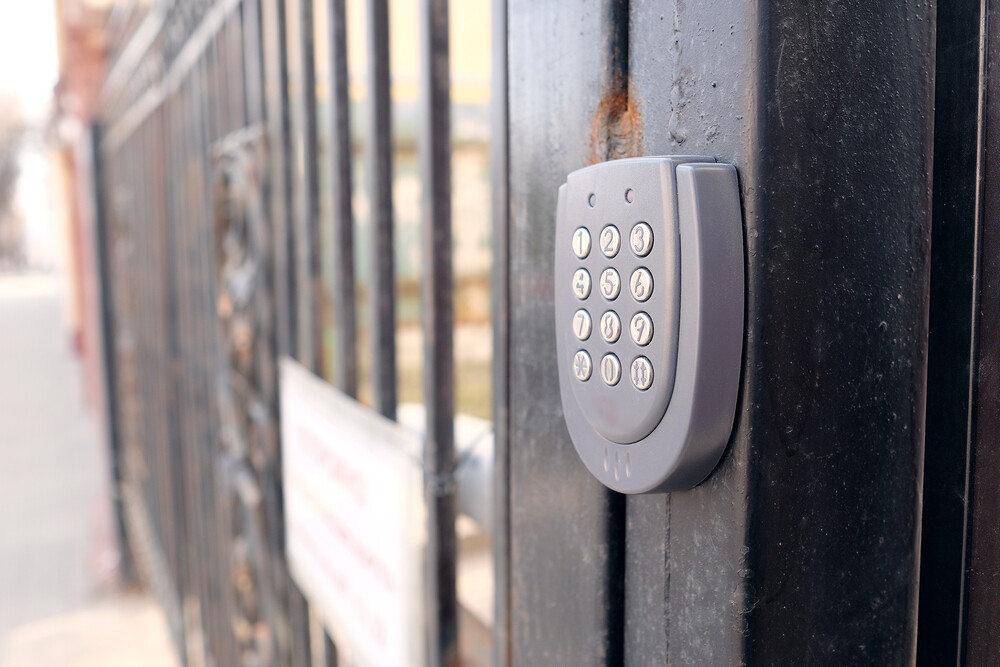Welcome back to Part II in our series taking a closer look at garage door openers. In Part I of our series we took a front seat to the AC/DC debate. And while we can debate the merits of the rock band all day long, we were actually discussing how garage door openers are powered. So, now that we know about the differences between AC and DC garage door openers, it’s time to discuss what a homeowner should look for when investing in a new garage door opener. Because we strive to make these decisions easy for you!
Examine the Drive Type First
We get it, choosing a garage door opener can seem like a monumental task, especially considering you have so many choices and information all over the web about them. But by following some basic guidelines, homeowners looking for garage door openers in Akron, Ohio can enjoy some peace of mind in their decision. And, of course, the expert garage door professionals here at Prestige Door are always ready to help!
The first step in choosing a garage door is choosing your drive type. Picking the right mechanism will likely solve some of the most common problems homeowners deal with when choosing a new garage door opener. Also, it is important to consider that it may very well be the mechanism that is causing problems to begin with. If you often ask yourself, “Why does my garage door rattle?” the likely answer is because of the mechanism driving your garage door opener.
So, if you are concerned about things like cost and noise, first evaluate the garage door opener mechanism. Options available to you include:
- Chain Drives: Chain drives raise and lower the garage door using a simple metal chain, similar to a bike chain. While the least expensive and most common of all garage door mechanisms, chain drives are also the loudest.
- Screw Drives: Screw drives use a threaded steel rod that turns to open and close the garage door. While they are a bit more expensive than screw drive, as they age, they can also present noise problems.
- Belt Drives: Belt drive garage door openers use a rubber (or other synthetic material) belt to raise and lower the garage door. Because they do not use any metal parts, they are some of the quietest options out there, but this also makes them some of the most expensive.
- Jackshaft/Side Mount Drives: Far less common, jackshaft drives do not attach to the ceiling, but instead are fixed to the front wall of the garage. The only moving part is the opener itself so, as a result, you have quiet operation, but also a higher price tag.
Now that you have already settled the AC/DC debate and evaluated the different drive types, next you want to learn more about and choose a power option. How much power your opener packs is very important depending on the size, weight, and operation of the garage door itself.
Assess Your Power Options Next
As you do your garage door opener shopping, you will find that there is a range of power options for your garage door opener. It’s our job to help you understand what those power options mean for you. First, it is likely you will first try to figure out how much power you need. There are three ratings you may see. They include:
- HP (horsepower)
- HPS (horsepower similar)
- HPC (horsepower comparable)
The reason you will see different designations like this is because HP technically is not the term used when discussing non-AC motors. As such, the industry chooses “equivalency” ratings when providing this information for consumer digestion.
When deciding how much horsepower you need, you want to evaluate the weight and dimensions of your garage door. For lighter doors, 1/2 or 1/4 HP should work just fine. For heavier garage doors, you may want to invest in a 3/4 HP model. 3/4 HP openers are generally used for heavy, solid wood doors or doors taller than 7 feet. Some garage doors, especially in Akron, Canton, and the surrounding areas, may be heavily insulated. The more weight your garage door carries, the more powerful your opener needs to be. 1 HP openers are generally only needed for commercial or heavy industrial doors.
It is also important to note that really heavy doors should utilize more sturdy drive types. Chain drives and other drives with metal components will last longer. Heavy doors put a lot of strain on rubber belts and plastic components.
Finally, Evaluate Additional Features
We no longer live an the era of the static house. Smart homes can now do everything for us from keep lights on while we are gone to alerting us when the garage door opens. For the most part, many of the features we take for granted are now standard issue. Infrared sensors, for example, are not optional but are expected in every garage.
Still, you should be able to expect more. Perhaps you want to invest in an opener with overhead lights. Or, maybe you want smart security features such as a hi-tech opener that selects a random radio code each time you activate it. These features decrease the chance for thieves to interfere with or steal your opener code. In the end, no matter what features you pick, reliability is always one of the most important considerations. Just remember this: The less parts that go into a system, the less maintenance it will need.
Many of the most common garage door problems can be traced right back to the garage door opener itself. Whether it be a bad shake, nasty rattle, or jittery roll, more often than not it is not the door itself. Fortunately, you don’t have to go into purchasing a new garage door opener blind. Trust the experts at Prestige Door to guide the way and contact us today!

